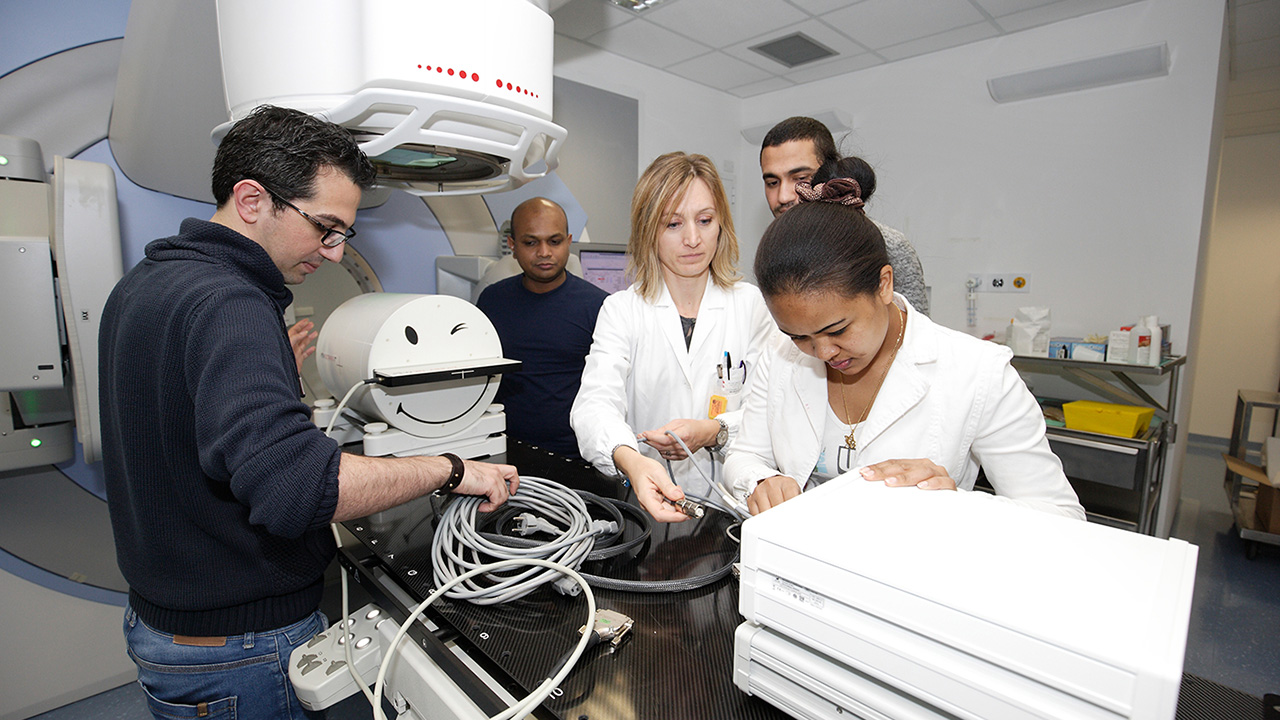
ICTP Research Scientist Jacopo Grilli studies how populations of microorganisms recognize patterns to prepare for environmental changes
Every day, we rely on our ability to remember patterns and associations to help us prepare for future events. We might expect rain on a cloudy day, and choose to take the bus rather than bike. Although learning and adaptation are typically associated with complex organisms, research has shown that even the simplest life forms—like bacteria—demonstrate a striking capacity to anticipate future changes. So how do they do that? This is what ICTP research scientist Jacopo Grilli and his collaborators at Yale University and at the Tokyo Institute of Technology set out to investigate, thanks to a new grant from the Human Frontier Science Program.
More news

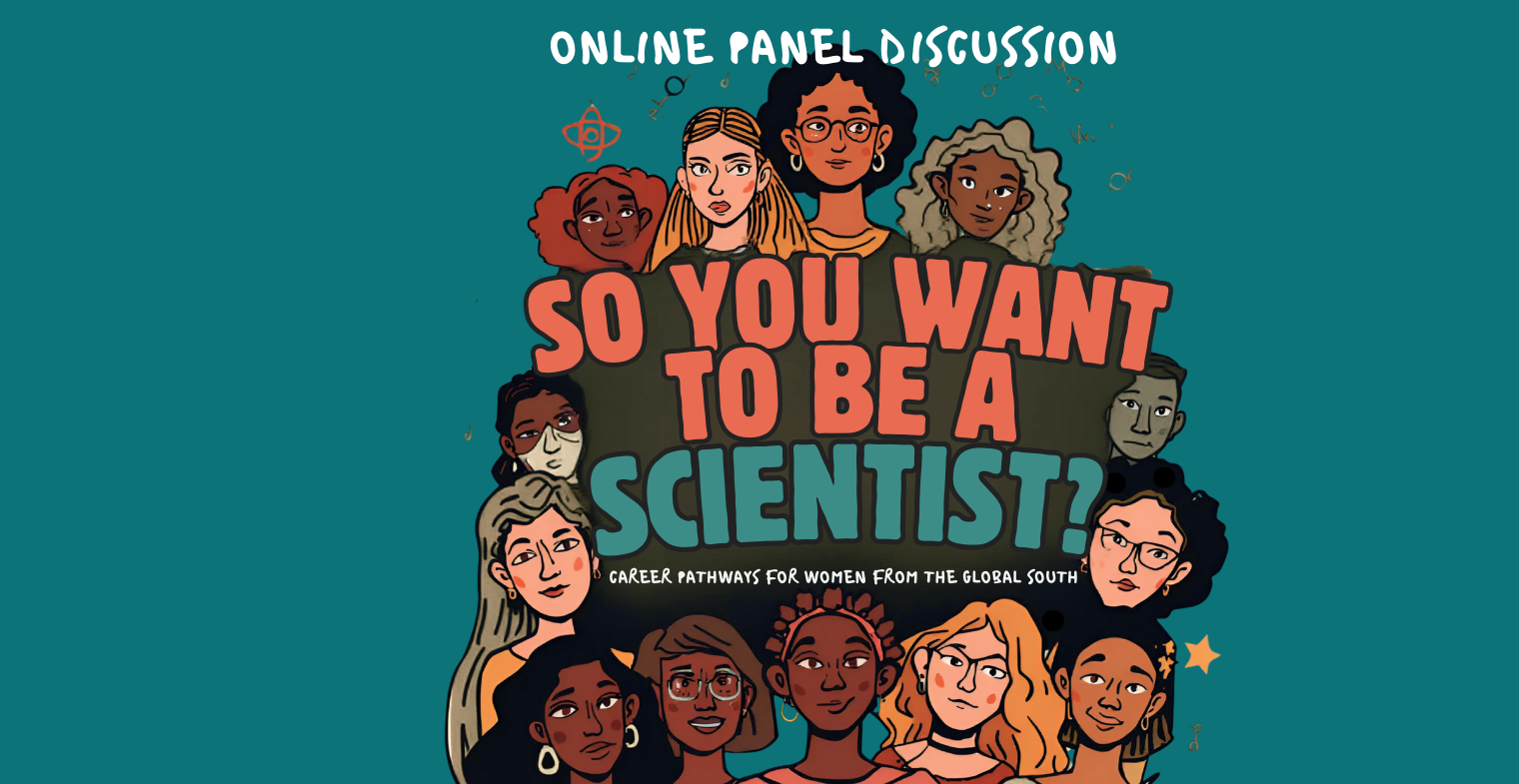
So you want to be a scientist? Career pathways for women from the Global South
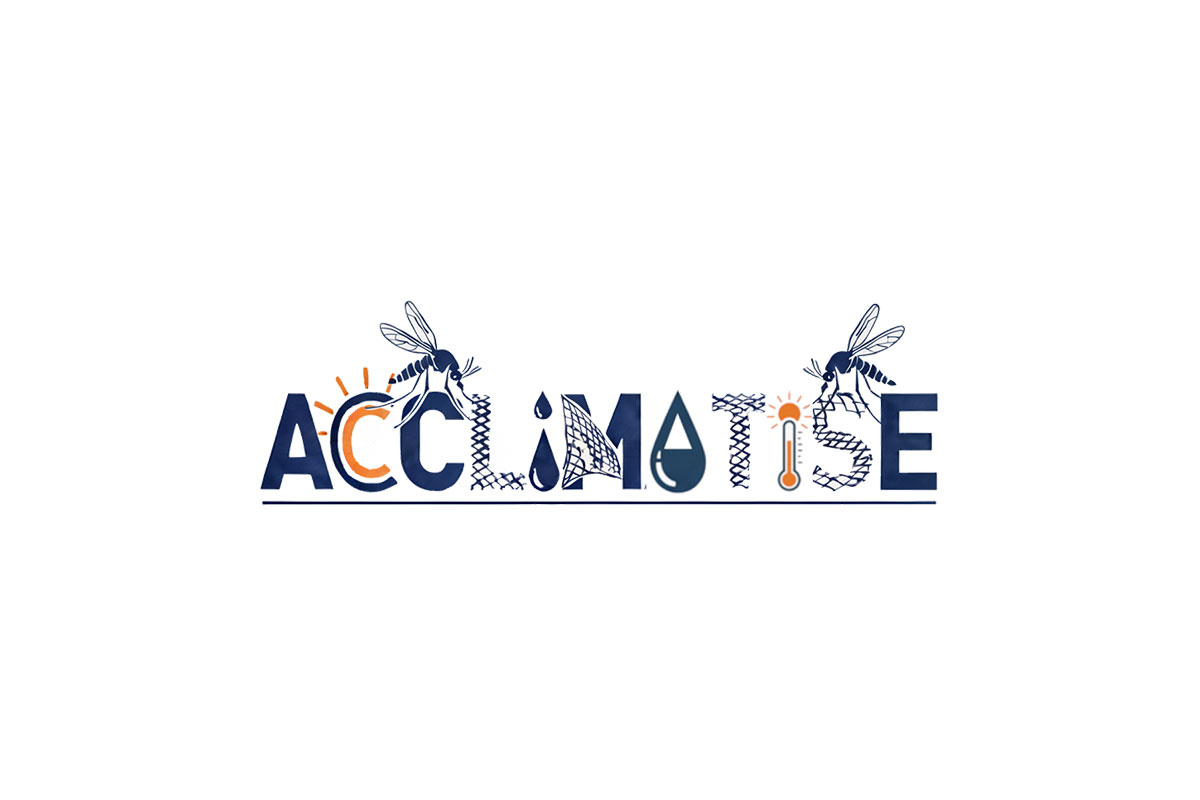
ICTP Leading New Anti-Malaria Initiative
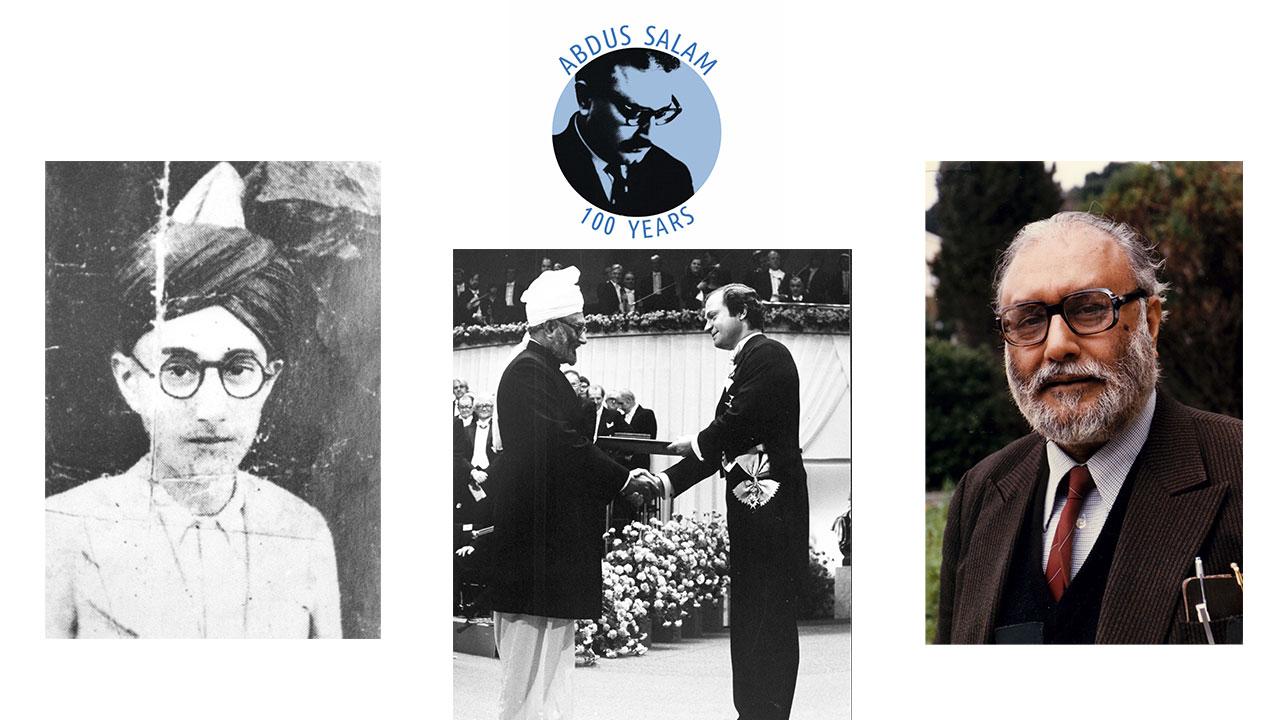
Launching Salam's Centennial Year
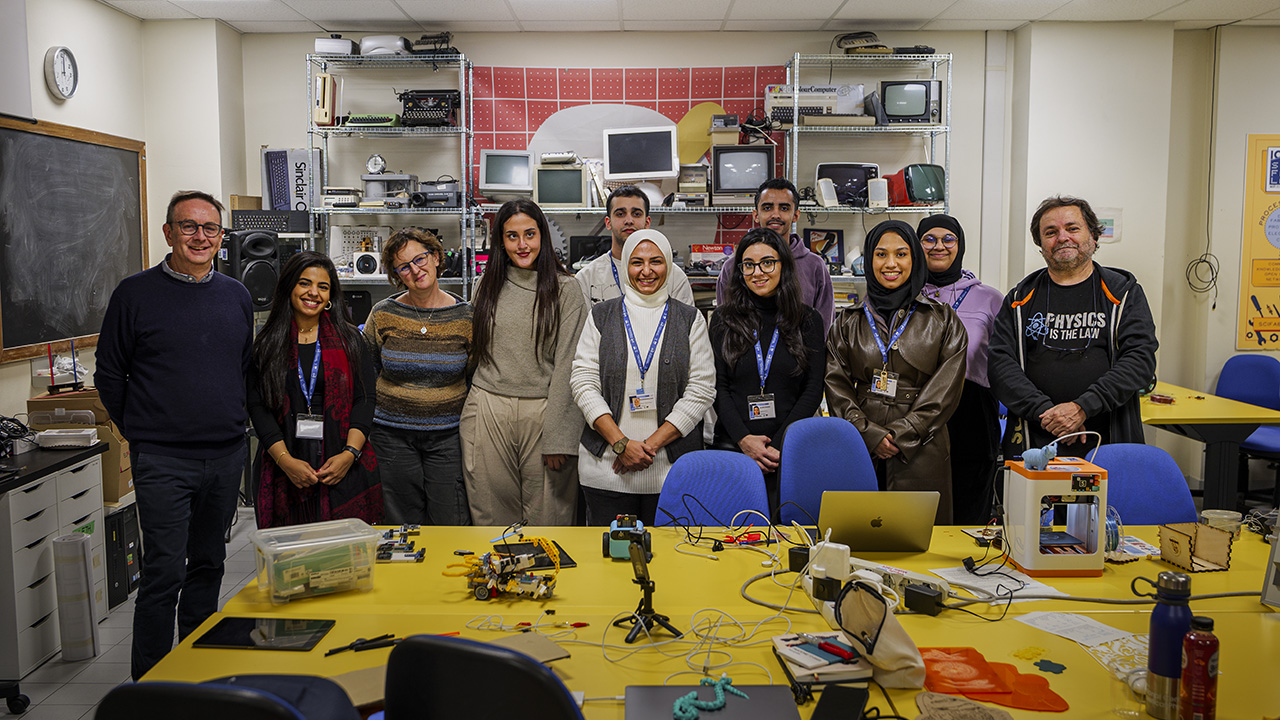
The ICTP SciFabLab Meets Kuwait
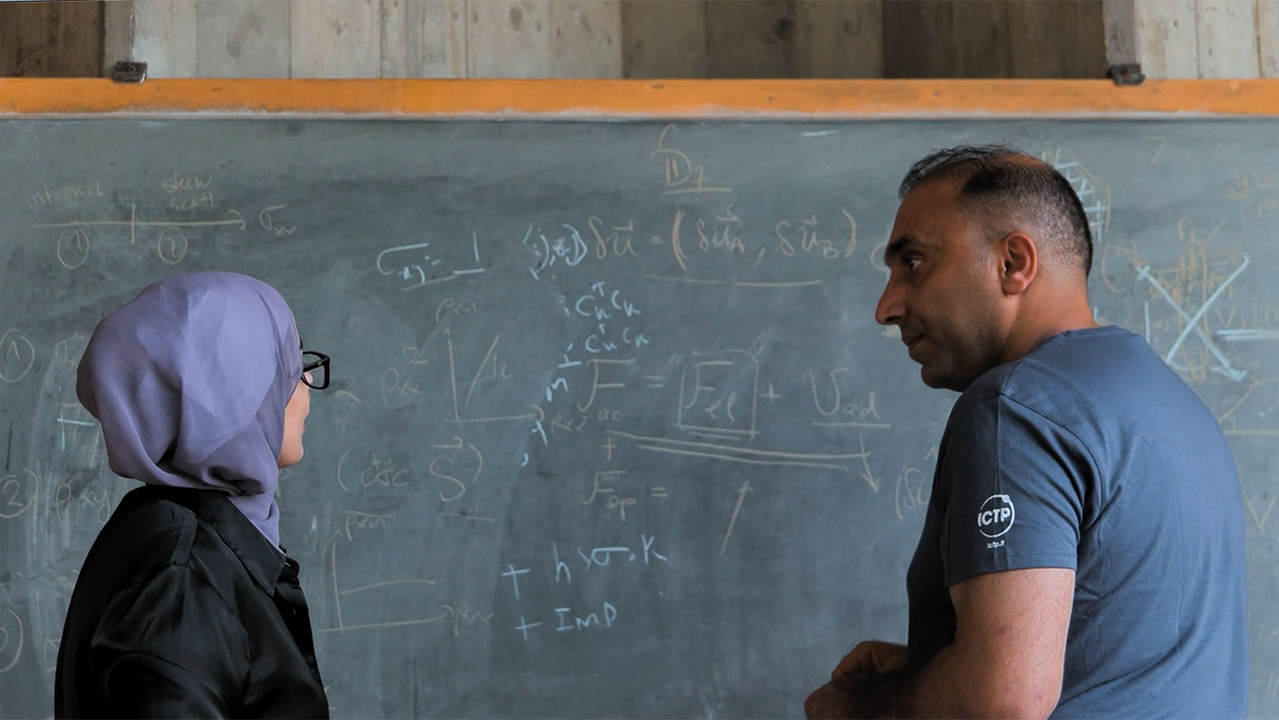
Machine Learning for Health Care in Palestine
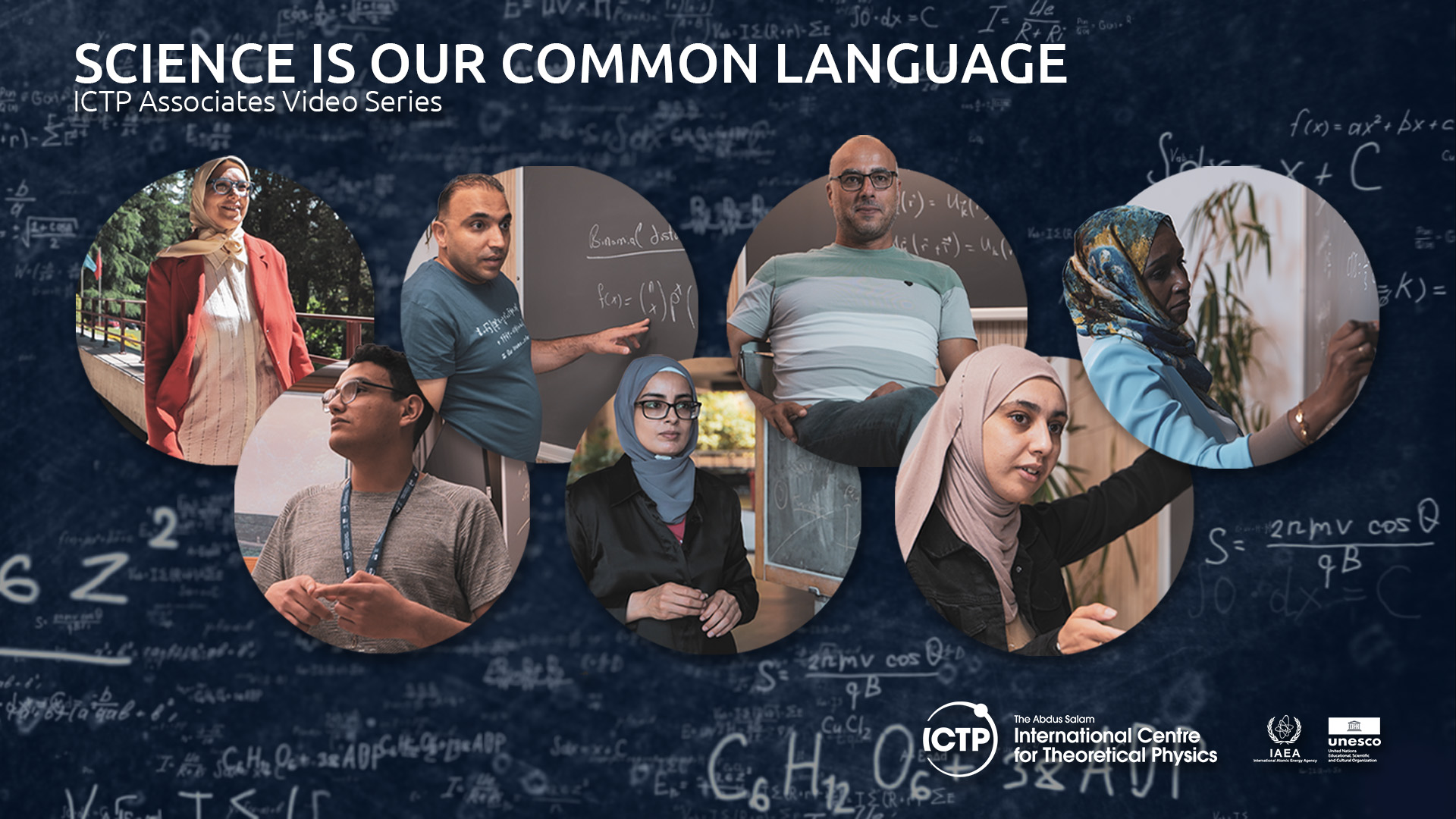
Science is Our Common Language
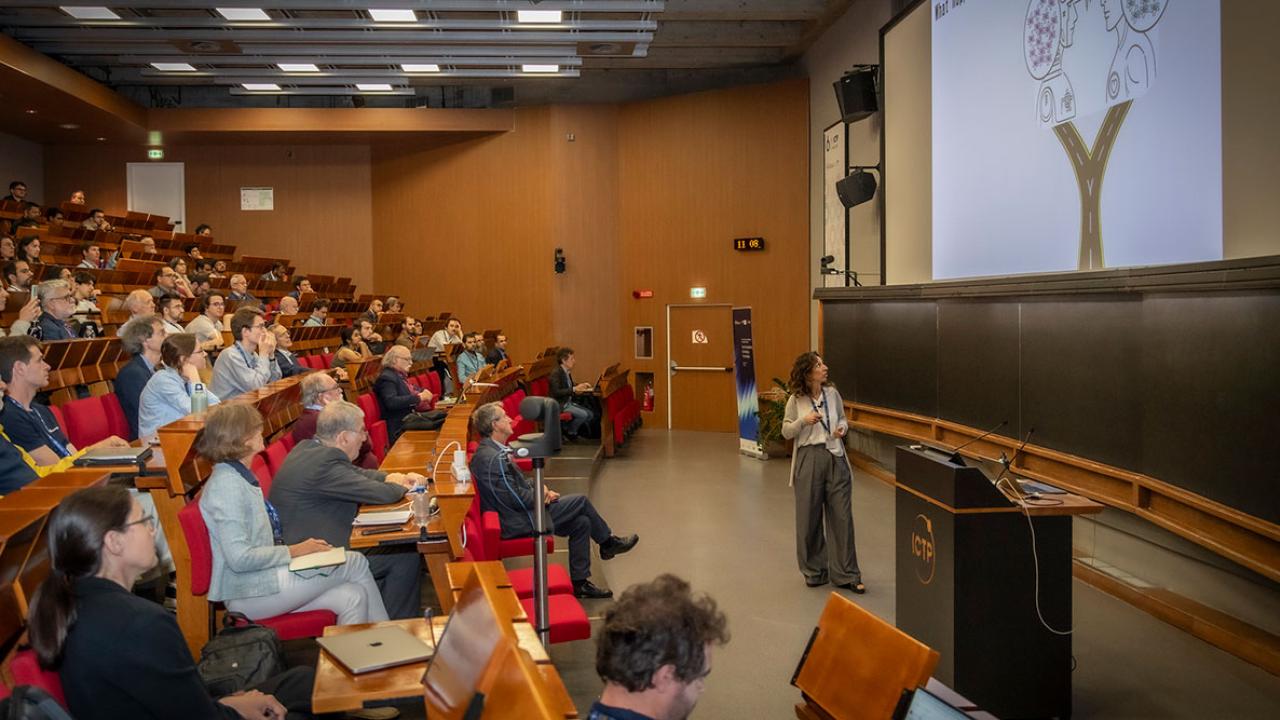
Call for proposals, ICTP Scientific Calendar 2027
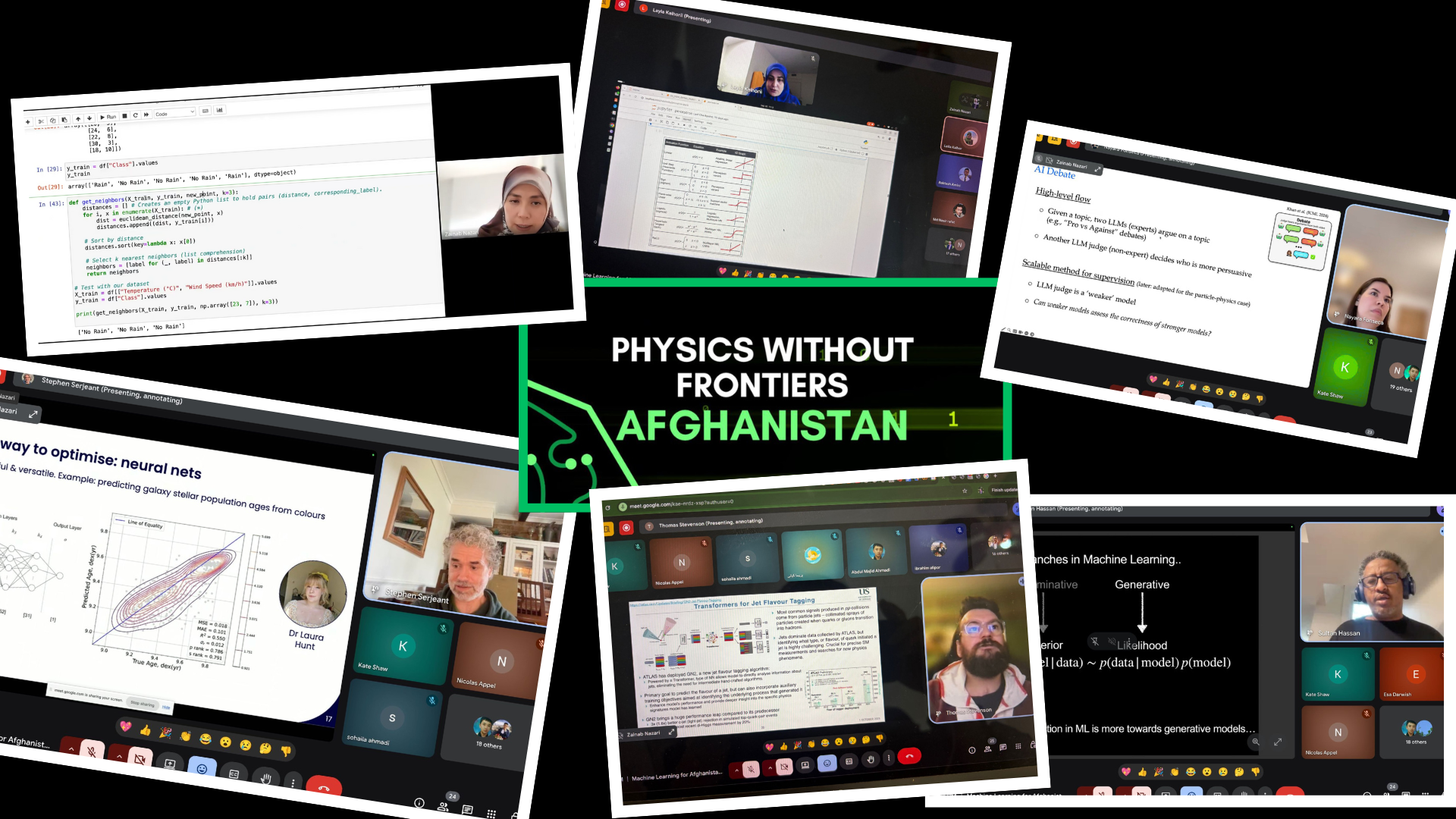
Artificial Intelligence for Afghan Students

Bright Imperfections?

ICTP researcher Erika Coppola receives the 2025 Motumundi Prize

ICTP’s Filippo Giorgi is among the world’s most influential researchers
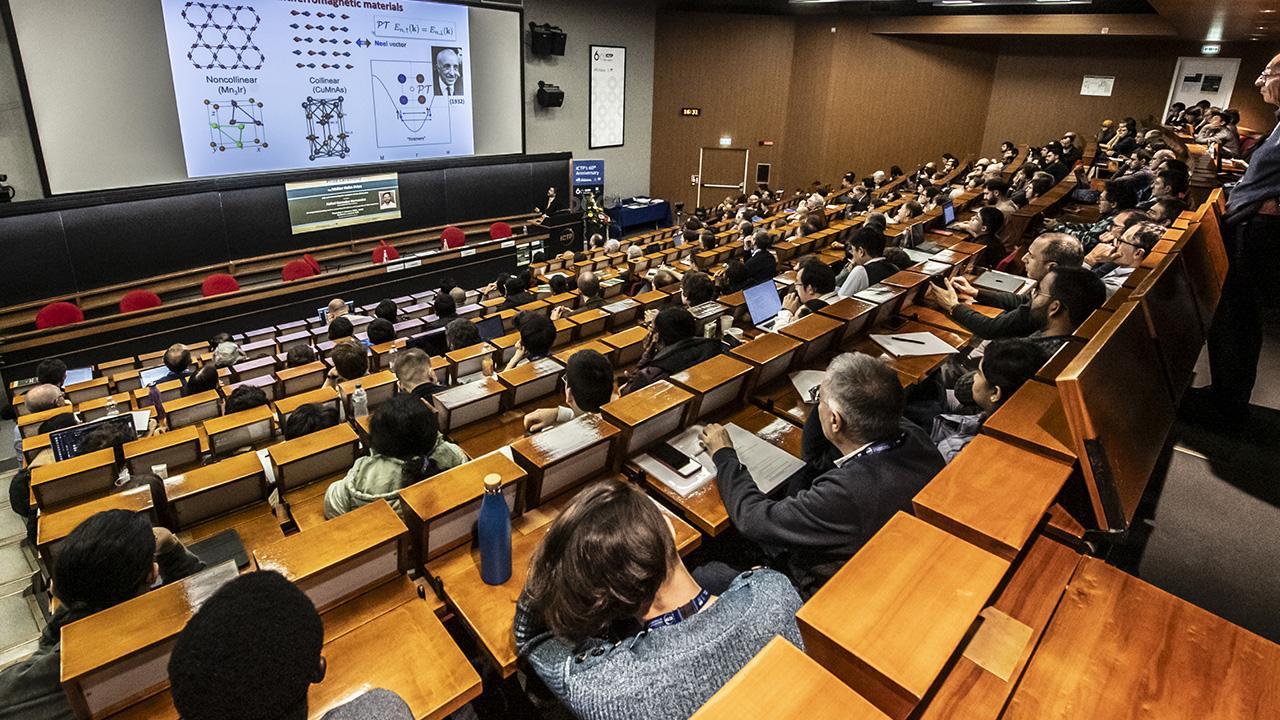
ICTP Announces its 2026 Scientific Calendar
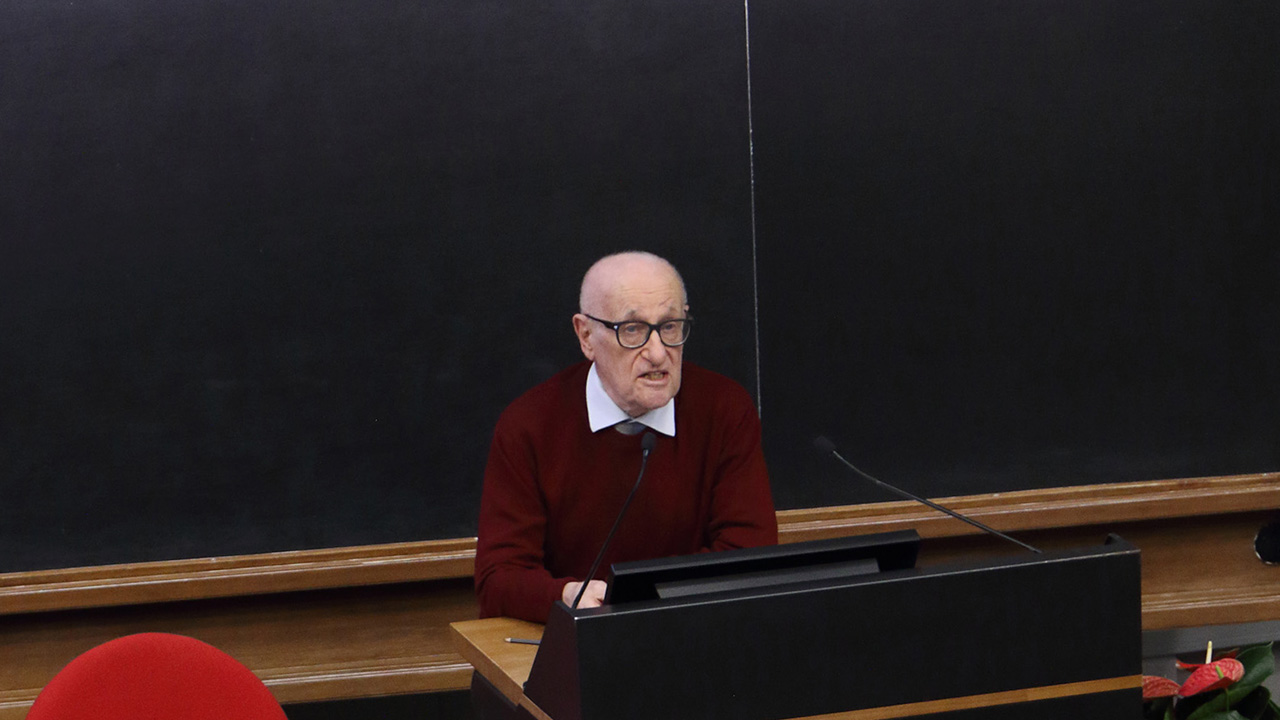
Eccellence in Medical Physics
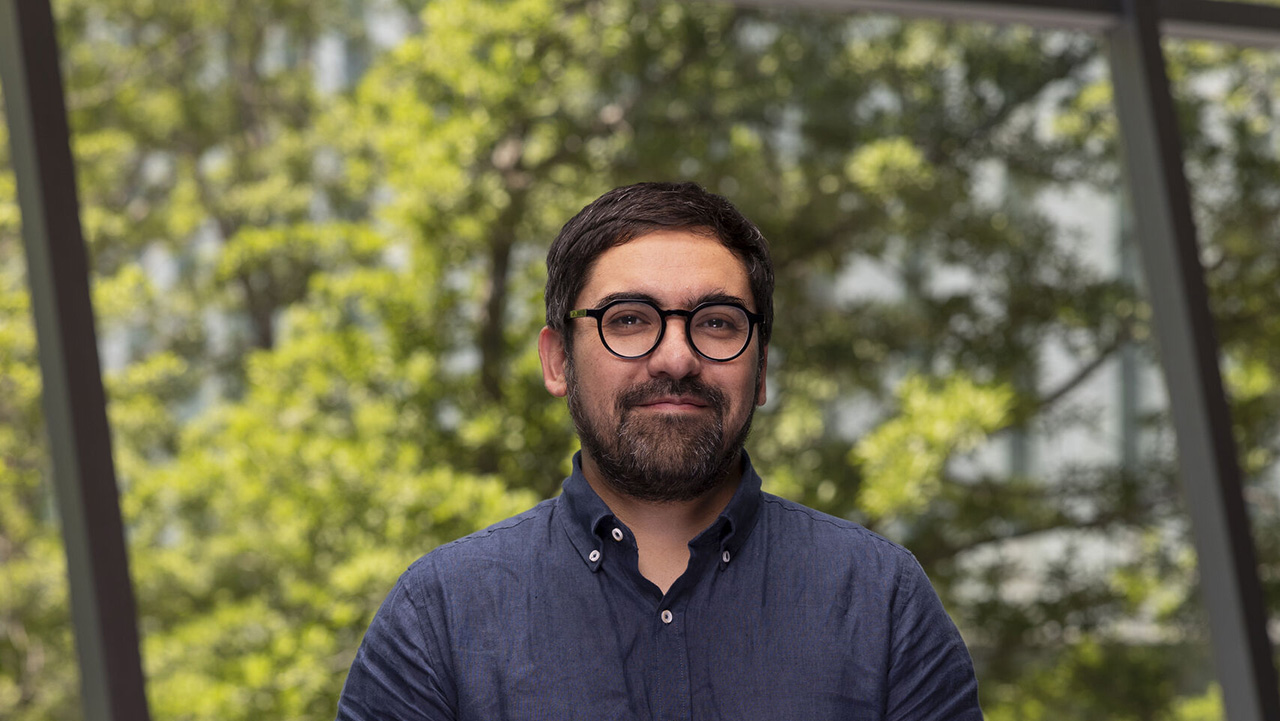
Ramanujan Prize 2025 Announced

Public film screening at ICTP
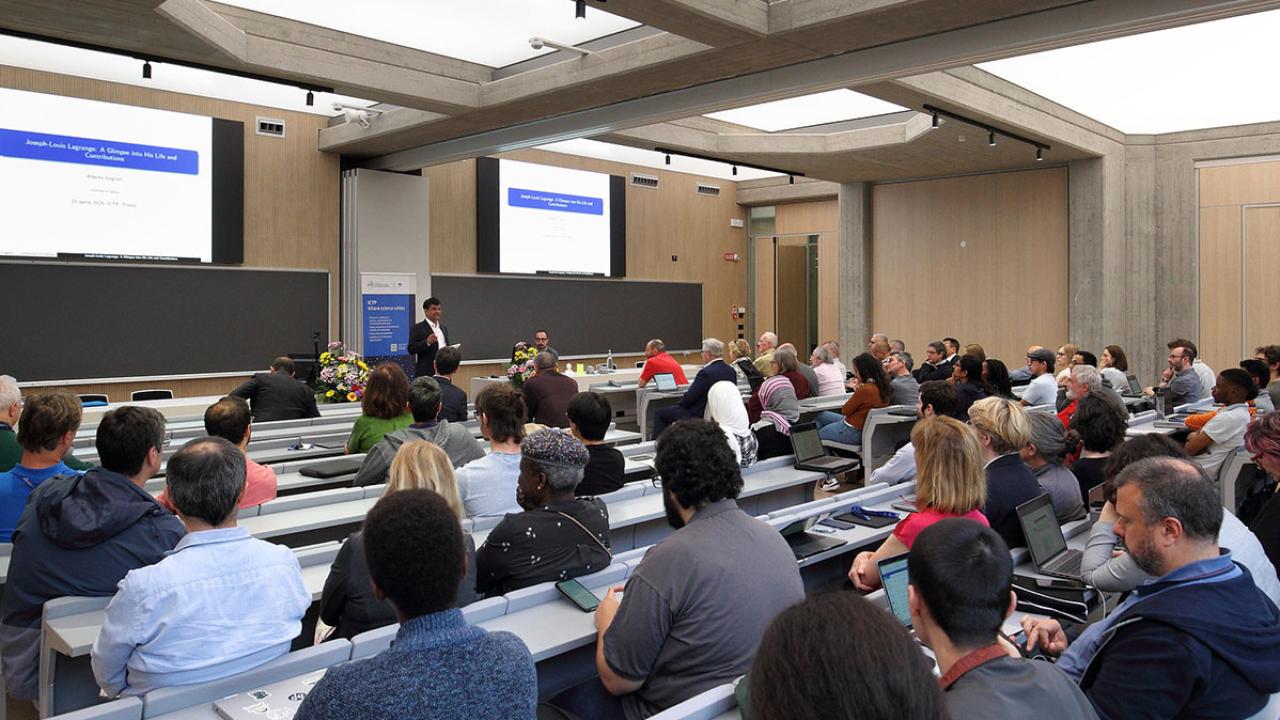
ICTP announces a new, five-year strategic plan
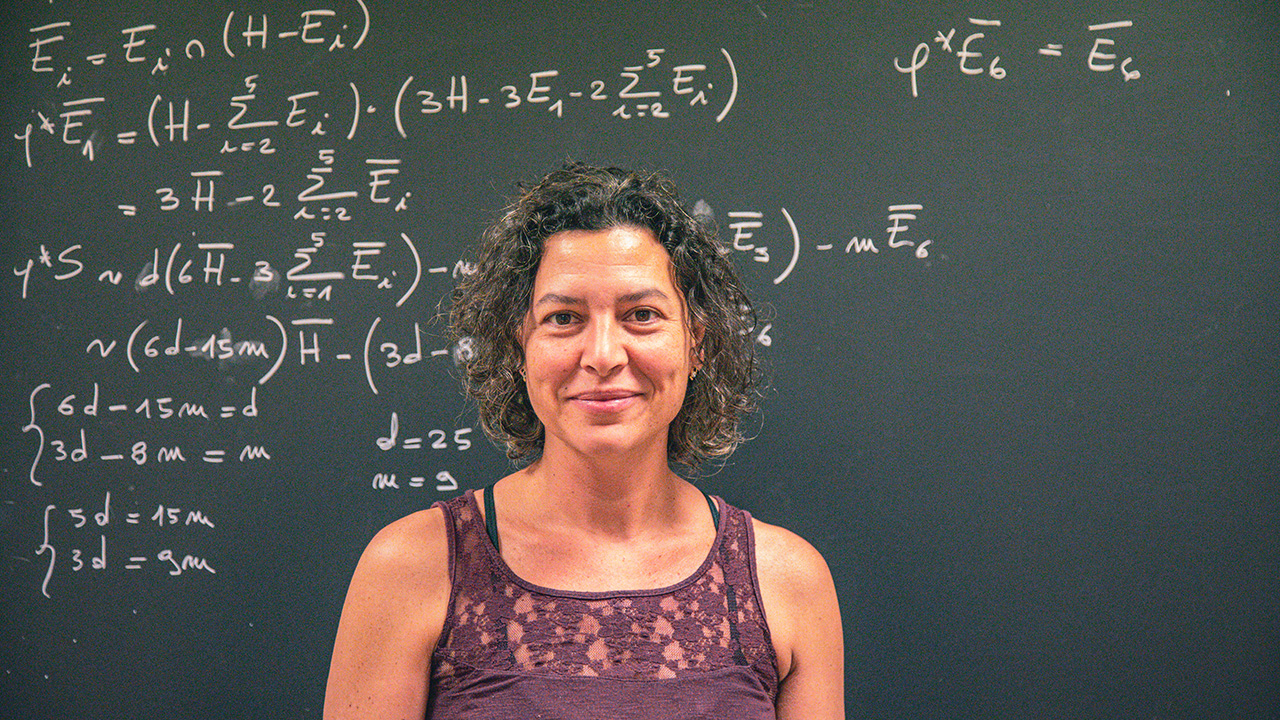
Carolina Araujo, new holder of ICTP Ramanujan International Chair
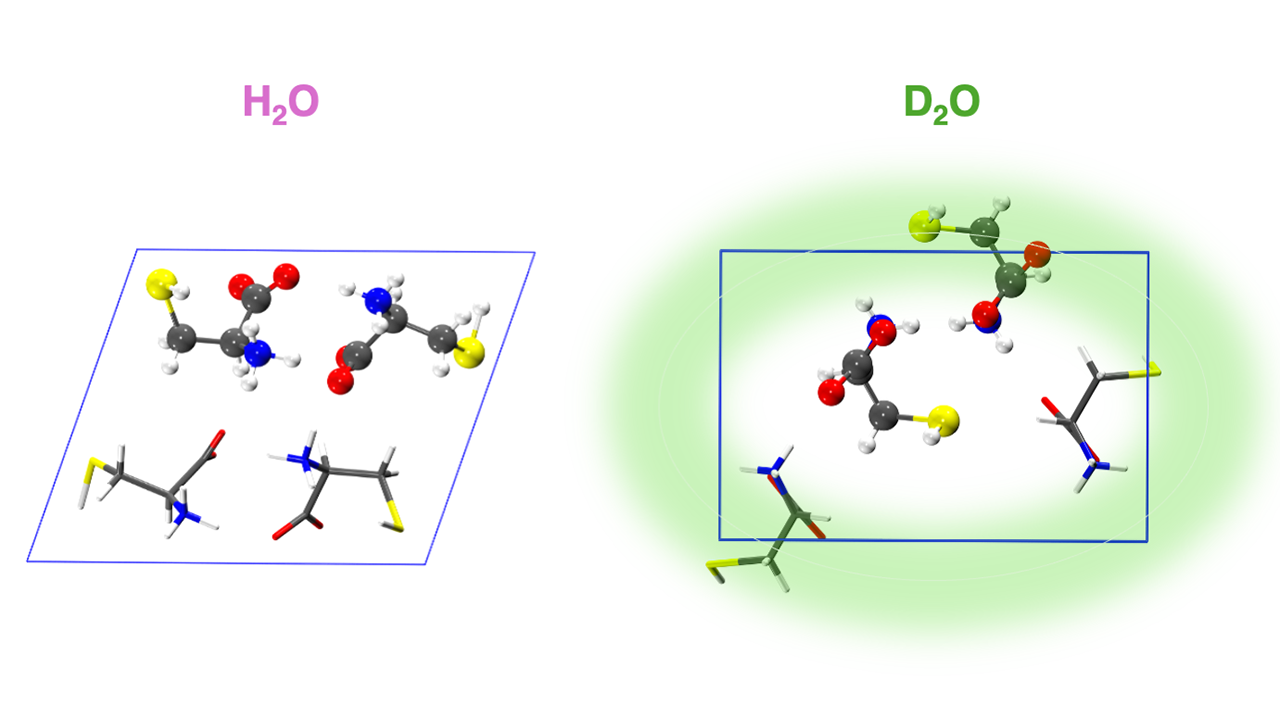
Fluorescence in Amino Acid Crystals
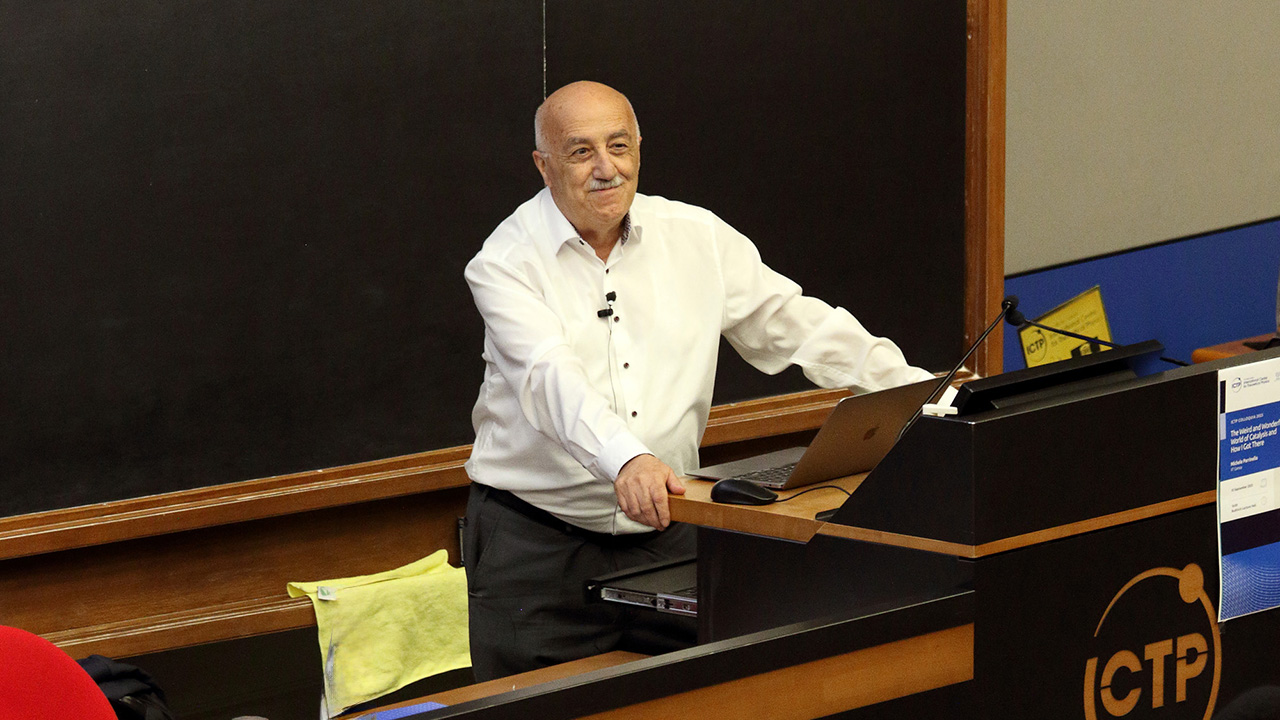
Michele Parrinello, a catalyst for discoveries
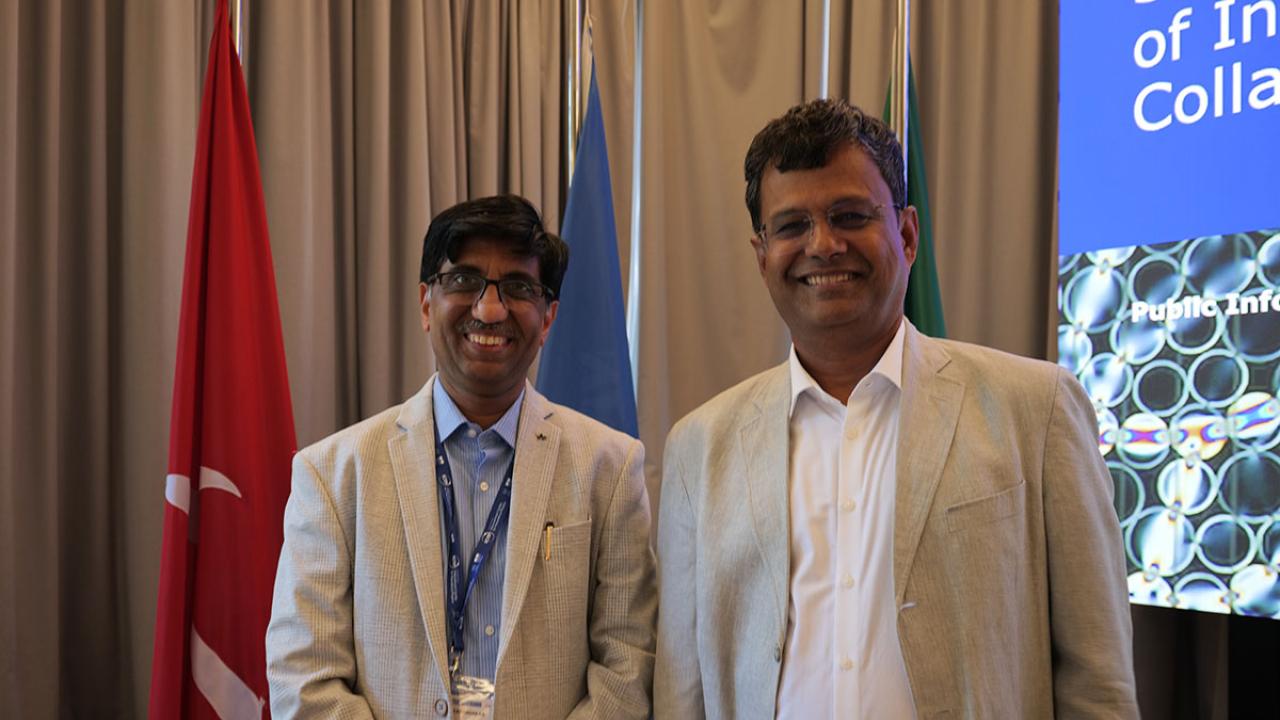
ICTP Welcomes Delegation from India
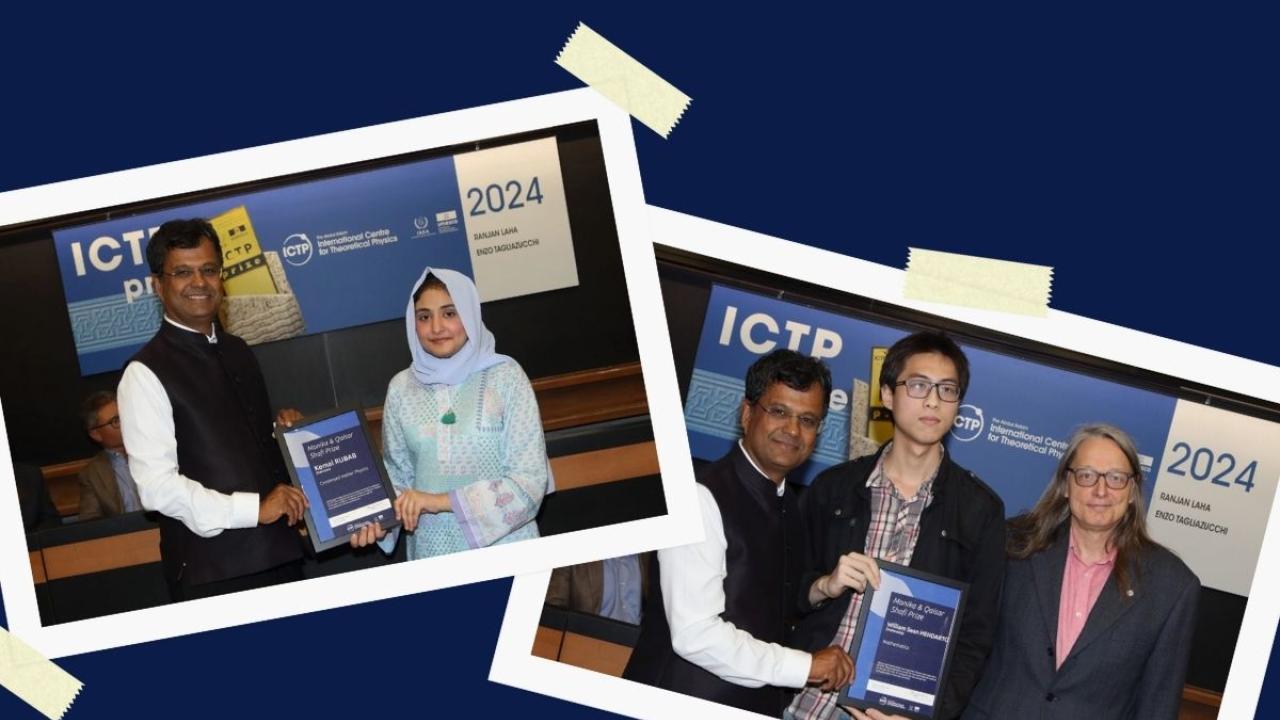
Two Diploma Students Share 2025 Shafi Prize
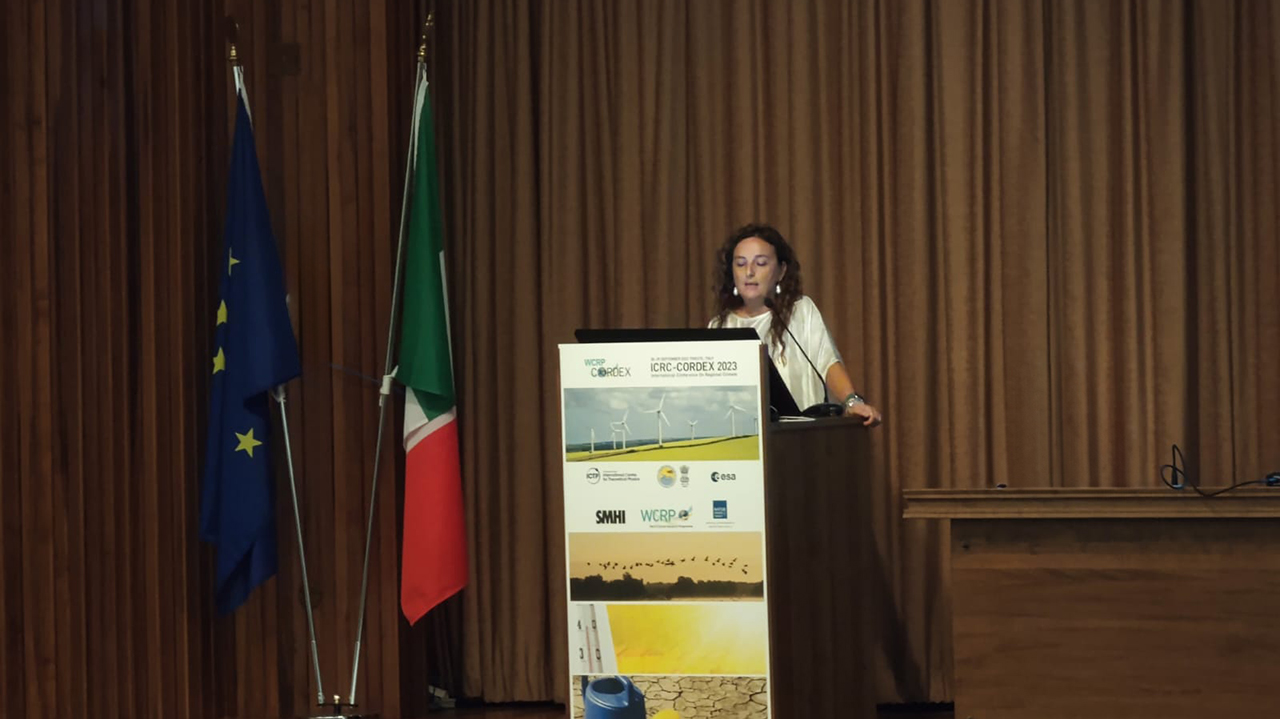
Assessing Climate Change
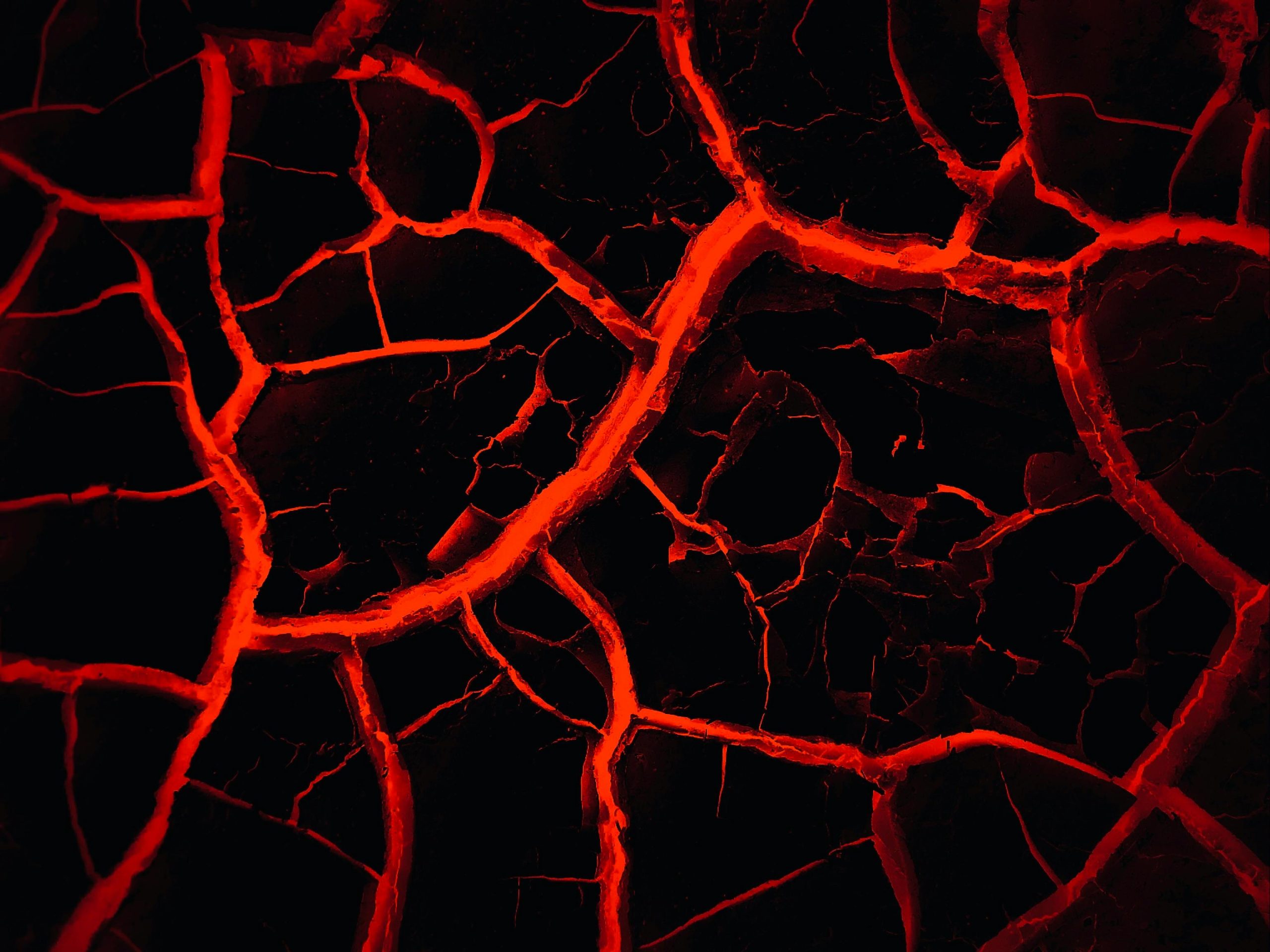
AI Sheds New Light on Earth’s Inner Core

2025 ICTP Dirac Medal Goes to Gravity Explorers
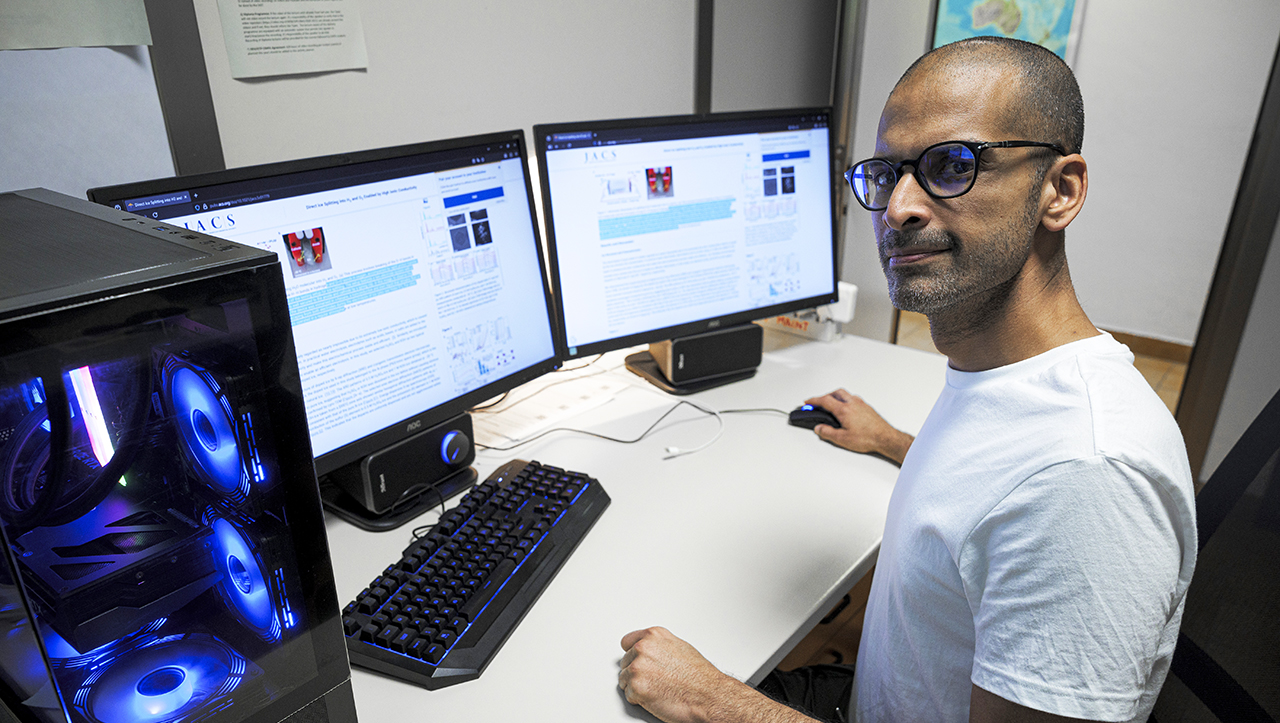
Eco-friendly Sunscreens with AI
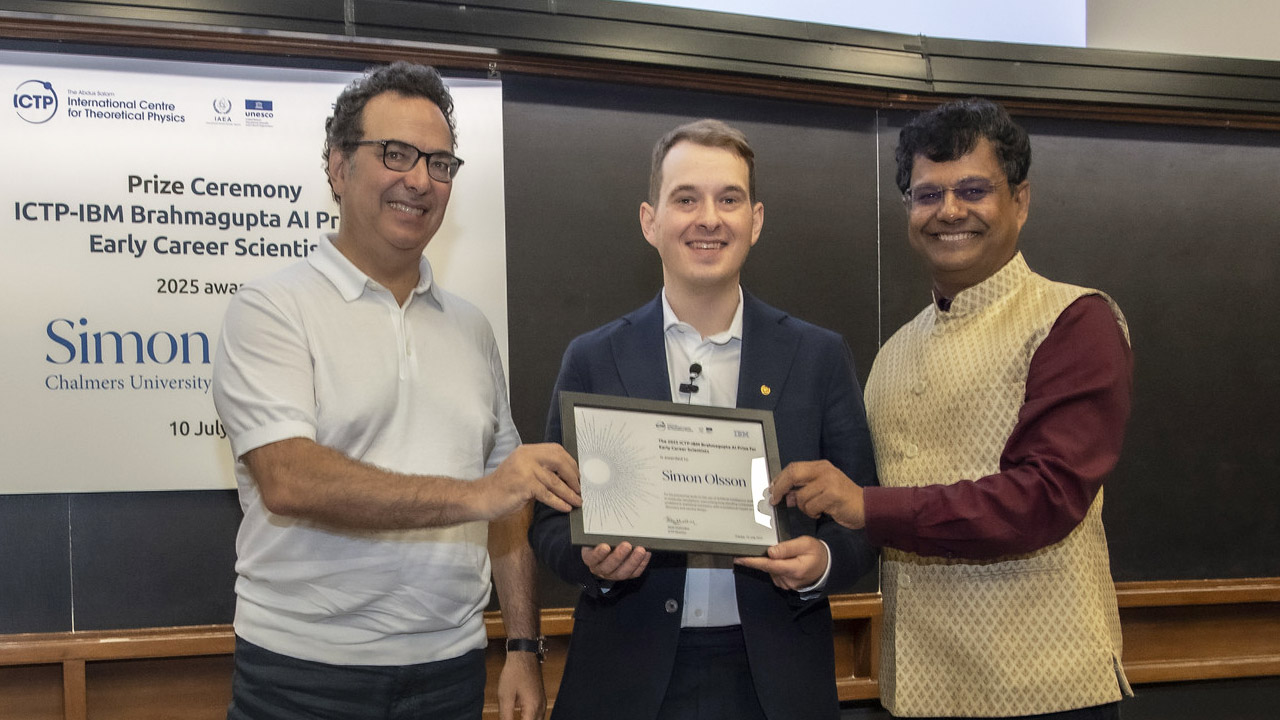
First winner of the ICTP-IBM Brahmagupta AI Prize for Early Career Scientists
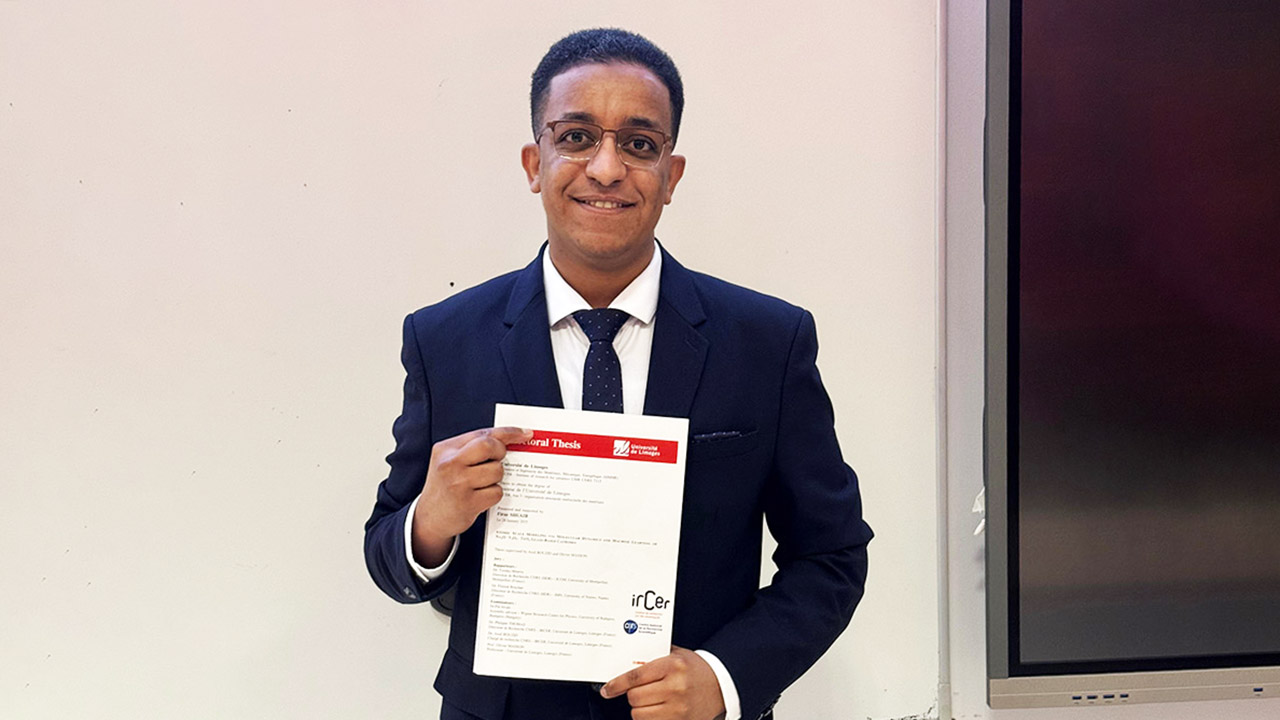 Find out more
Find out more
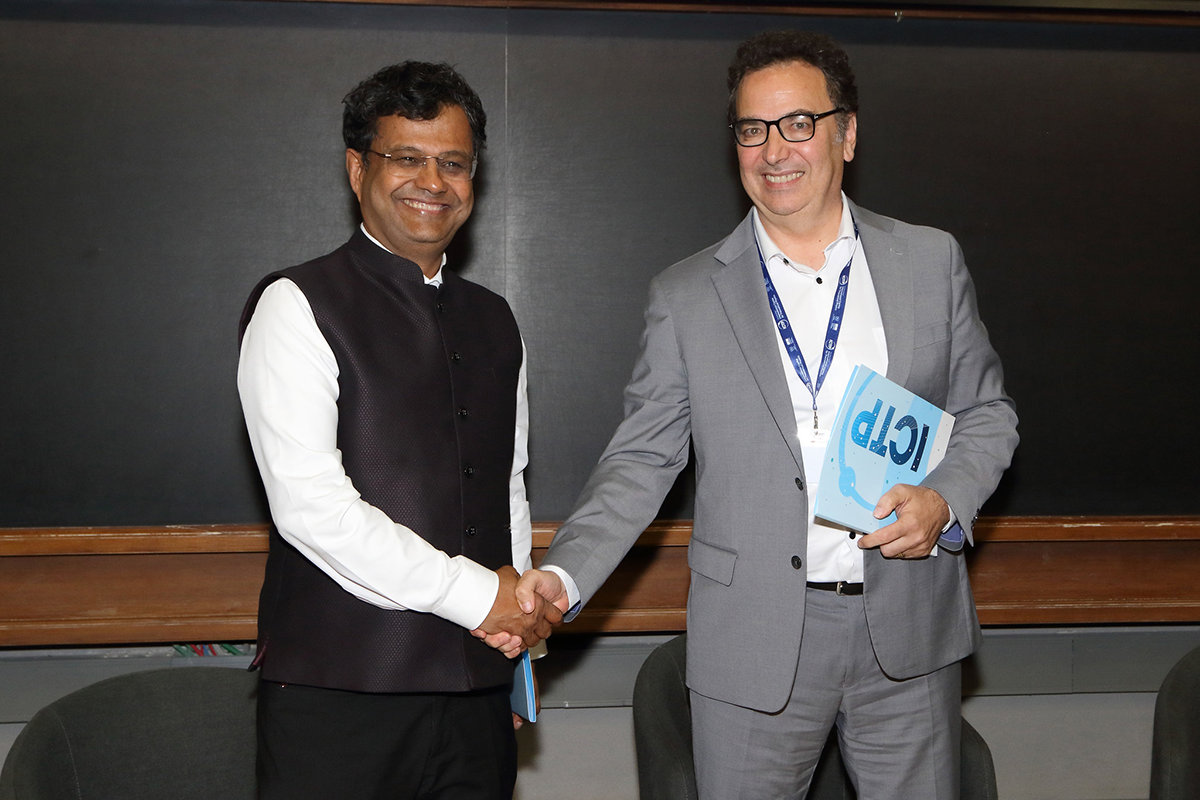
ICTP and IBM Announce Plans for New Prize for Quantum Computing
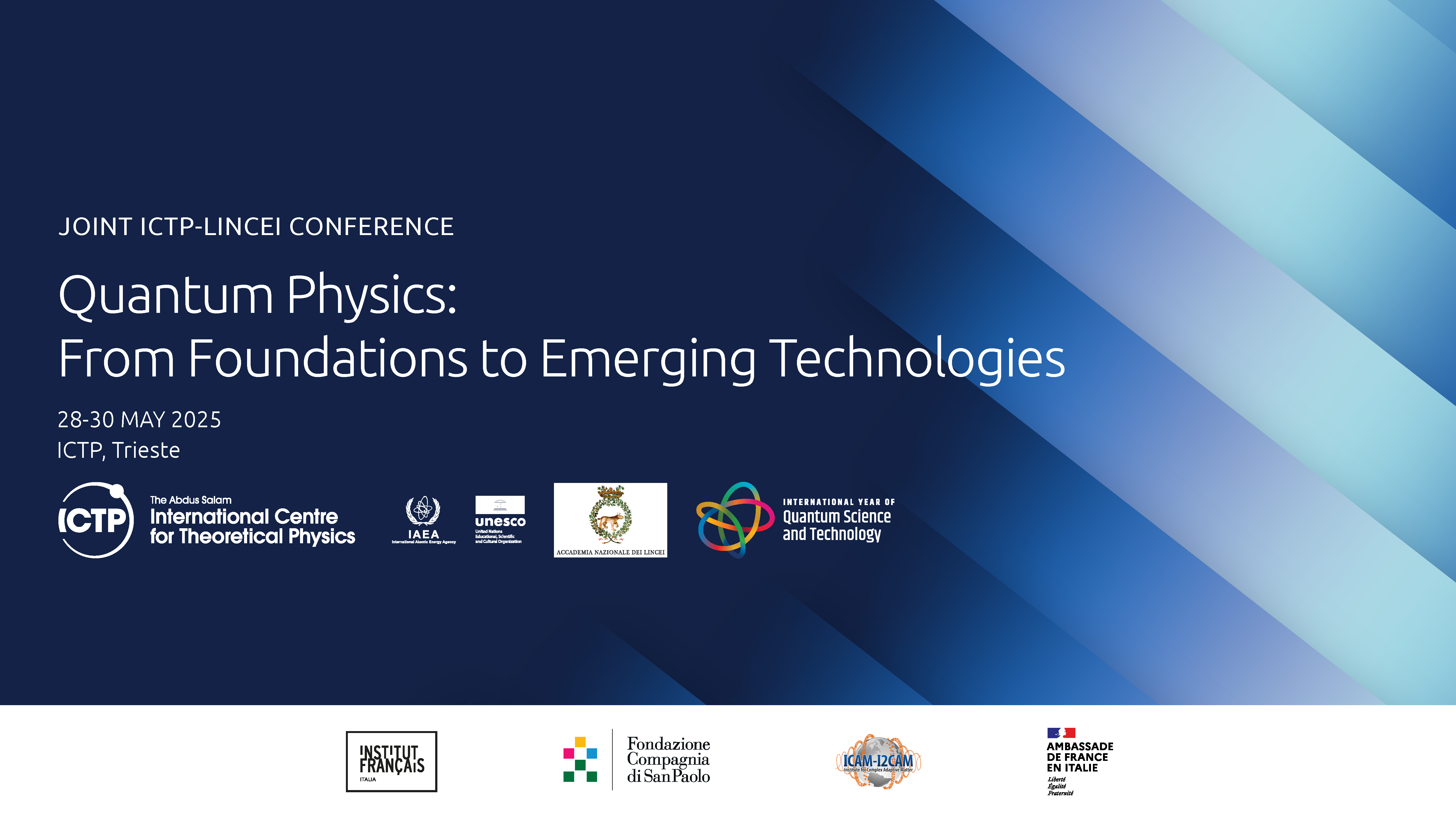
Celebrating Quantum Science

Measuring the Elusive: Quantum Physics Rewrites the Metric System

Quantum Materials, Trapped
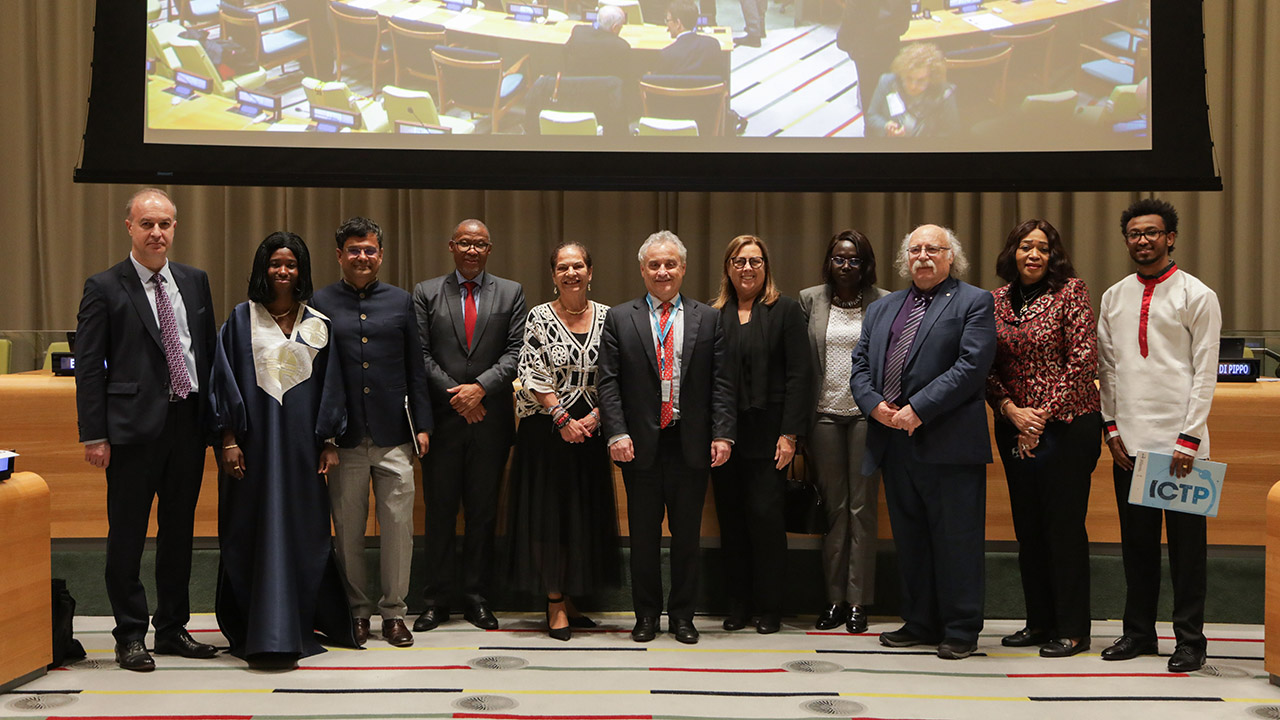 Find out more
Find out more

Finding Energy in Hydrogen
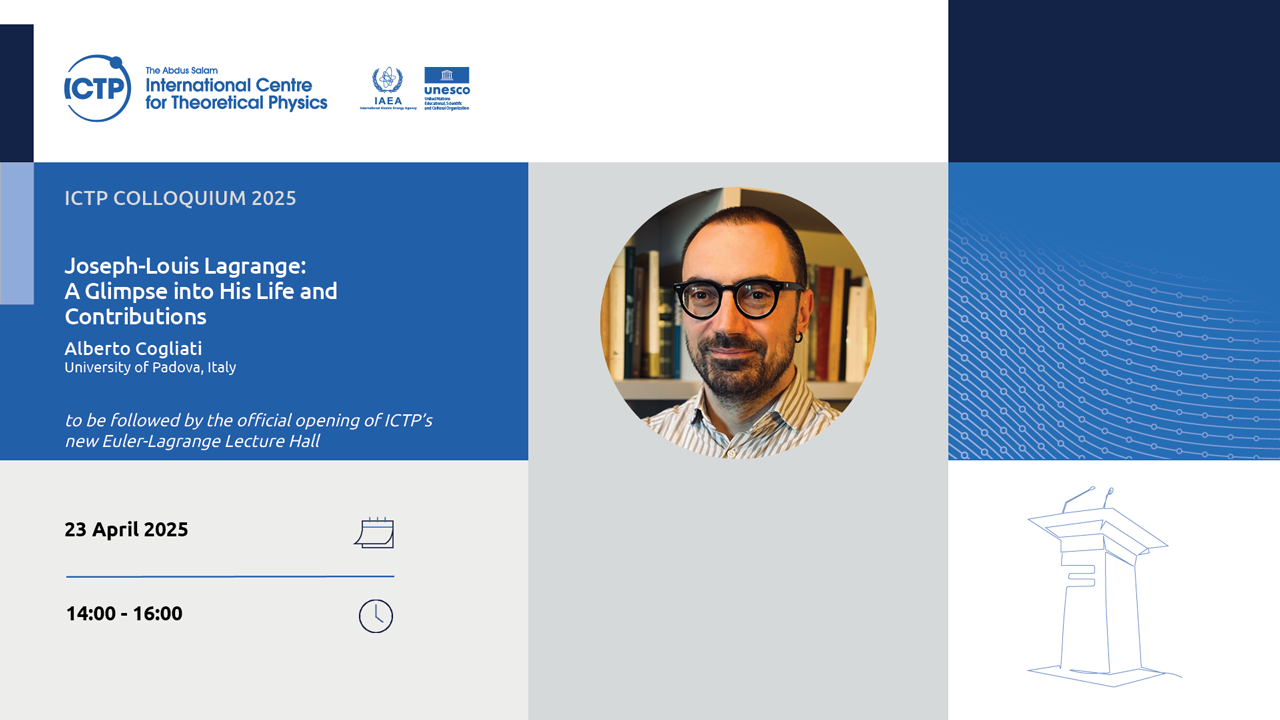
ICTP Honors Euler and Lagrange in New Lecture Room
Connecting quantum computing to network theory
From ICTP Diploma to High Performance Computing
Celebrating Quantum Science
From Chemistry to Quantum Computing
